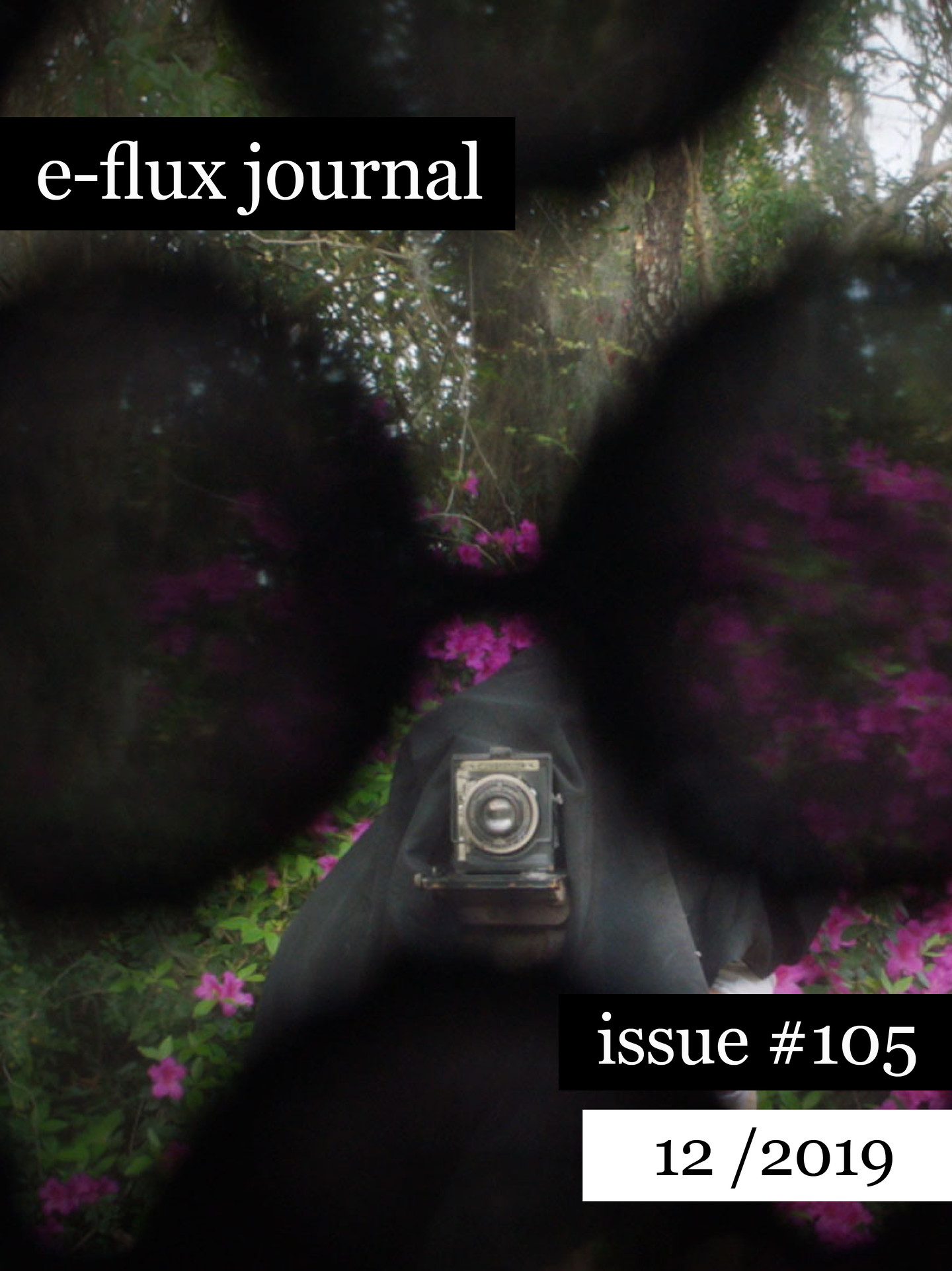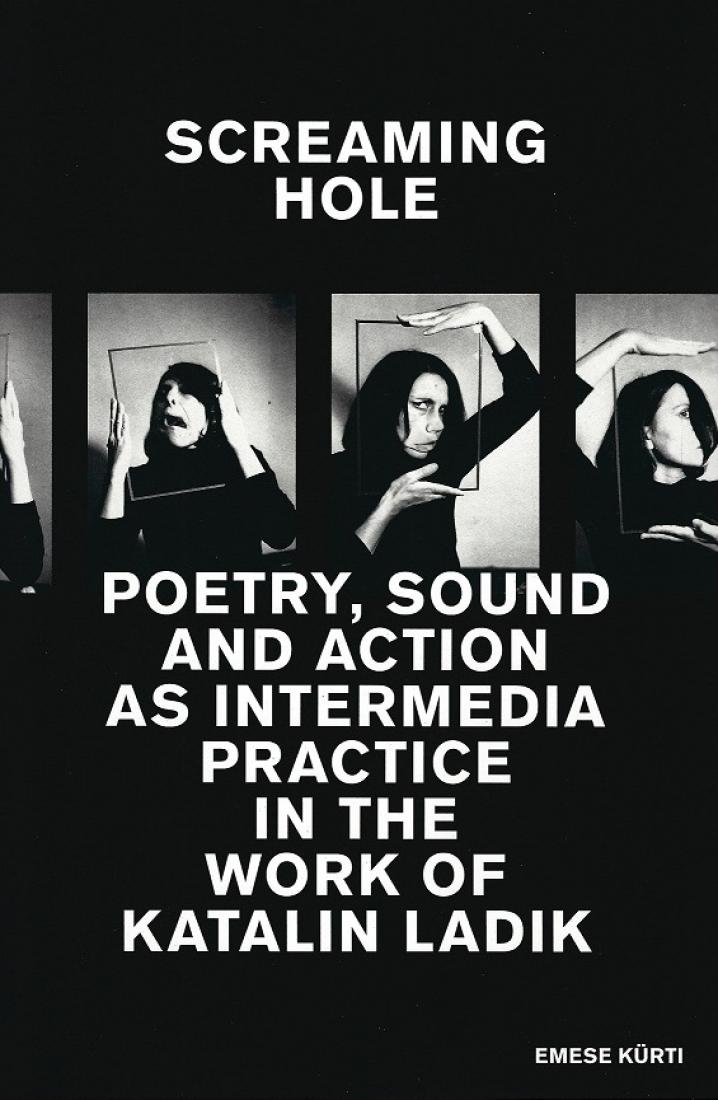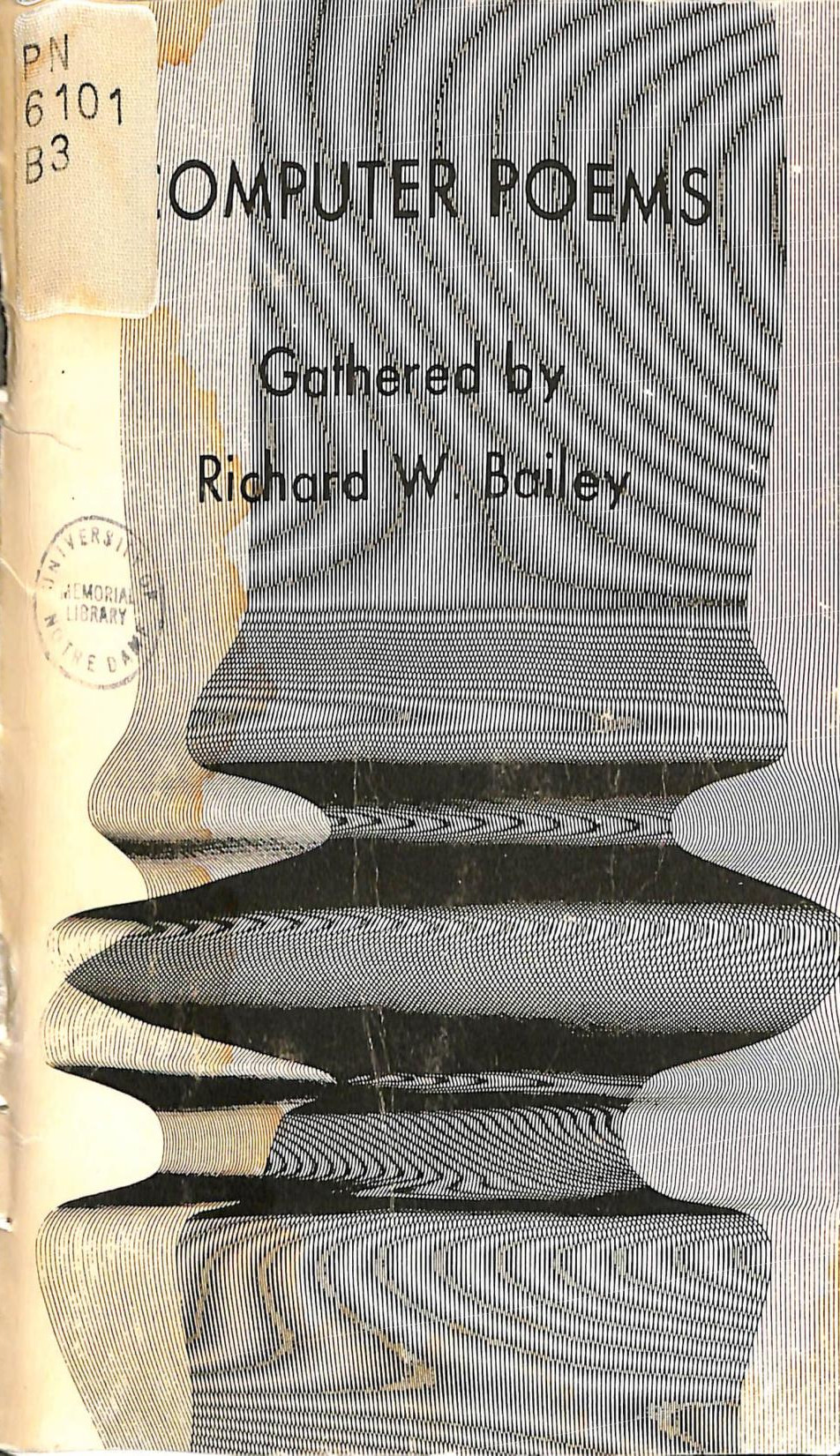e-flux journal, 105: Loophole of Retreat (2019)
Filed under magazine | Tags: · art, black people, feminism, film, poetry, race, women

“On April 27, 2019, the Solomon R. Guggenheim Museum was the site of a very special convening. It was the brainchild of Simone Leigh, and shared its title with her 2019 exhibition at the museum. Organized by Leigh, Saidiya Hartman, and myself, ‘The Loophole of Retreat’ was an exhilarating, rejuvenating, and inspirational daylong gathering dedicated to the intellectual life of black women that brought together an international constellation of writers, artists, poets, filmmakers, and activists. This special issue of e-flux journal seeks to lift up the extraordinary voices, thoughts, and conversations that emerged at the convening and share them with a wider audience. In doing so, I and my coeditors, Leigh and Hartman, seek to extend the dialogues of the ‘Loophole’ in the hope of including others and inspiring future gatherings which, like the Guggenheim convening, will honor and celebrate the intellectual and creative labor of black women.” (Tina M. Campt)
Contributions by Simone White, Sharifa Rhodes-Pitts, Rizvana Bradley, Dionne Brand, Zakiyyah Iman Jackson, Christina Sharpe, Vanessa Agard-Jones, Grada Kilomba, Françoise Vergès, Denise Ferreira da Silva, Okwui Okpokwasili, Lorraine O’Grady, Annette Lane Harrison Richter, Madeleine Hunt Ehrlich, and Asiya Wadud.
Edited by Tina Campt, Saidiya Hartman, and Simone Leigh
Publisher e-flux, New York, Dec 2019
ISSN 2164-1625
Emese Kürti: Screaming Hole: Poetry, Sound and Action as Intermedia Practice in the Work of Katalin Ladik (2017)
Filed under book | Tags: · action art, art criticism, art history, hungary, intermedia, neo-avant-garde, performance art, poetry, serbia, sound art, yugoslavia

“This book focuses on the experimental practice of Katalin Ladik, a poet, performer and actress born in the former Yugoslavia. Her career as a poet writing in Hungarian language began in the intellectual circles of the neo-avant-garde journal Új Symposion (New Symposium) in Novi Sad, but the subversiveness of her feminine practice gave her a distinctive position in the whole Yugoslav neo-avant-garde scene as early as the late 1960s. At the same time, linearity was also being replaced in Ladik’s poetic works by an extended notion of poetry, as she realised her actionism in a complex and mutual intermedial relationship between poetry, sound and visuality. Her performances attracted lively attention not only on account of an interpretation of poetry and sound that was radically new both in Yugoslavia and abroad at the time; her use of the eroticized body also seemed to lack any predecessors in the local avant-garde of the day. Katalin Ladik, who synthesized the traditions of Balkan folk music and Hungarian folklore, could work supraethnically, as it were, in this multiethnic Yugoslav context, using the references of multiple cultures, which suited with persistently international spirit of the avant-garde.”
Translated by Katalin Orbán
Publisher acb ResearchLab, Budapest, 2017
ISBN 9789631283617, 9631283615
247 pages
via Author
PDF (36 MB)
Comment (0)Richard W. Bailey (ed.): Computer Poems (1973)
Filed under book | Tags: · computing, concrete poetry, poetry, visual poetry

A collection of early computer-generated poetry gathered by Richard W. Bailey.
“At the beginning of this century, Stephane Mallarmé published a slogan for modernism: A throw of the dice will never abolish chance. Chance is not abolished by the computer’s randomizing power but is re-created in different terms. The poet-programmer finds this power a tool to create a new set of dice, multi-faceted and marked with elements of his own choosing.
Yet the new battle to free language is fought on familiar battlefields: concrete poetry is reflected with a computer mirror in the poems of Leslie Mezei and Greta Monarch; pure poetry of sound in the verbal orchestrations of Archie Donald and Noreen Greeno; imagistic poetry in the juxtaposition of the unfamiliar by Charles Forbes, James Runner, and Robin Shirley; syllabic organization in the haiku of Margaret Chisman, Robert Gaskins, and John Morris; and the imposition of order on disorder in the poems of Marie Borroff, Pete Kilgannon, and Louis Milic. From all of these varied efforts a new convention has already arisen that allows poets like Edwin Morgan the scope to simulate computer poetry without recourse to the machine.
The Potagannissing Press takes pleasure in the publication of the following collection of poems, an edition of computer-assisted literary works executed in Britain, Canada, and the United States.
The occasion for its publication was a symposium on the computer in the arts held at the Cranbrook Academy of Art in May 1973, an event sponsored by the Academy, the Bloomfield Art Association, Eastern Michigan University, and the University of Michigan, with the support of the Michigan Council for the Arts.” (from the preface)
Publisher Potagannissing Press, Drummond Island, MI, 1973
53 pages
via xfoml
Commentary: Matteo D’Ambrosio (Matlit, 2018).
PDF (7 MB, page warble is due to the book copy’s poor condition)
Internet Archive

